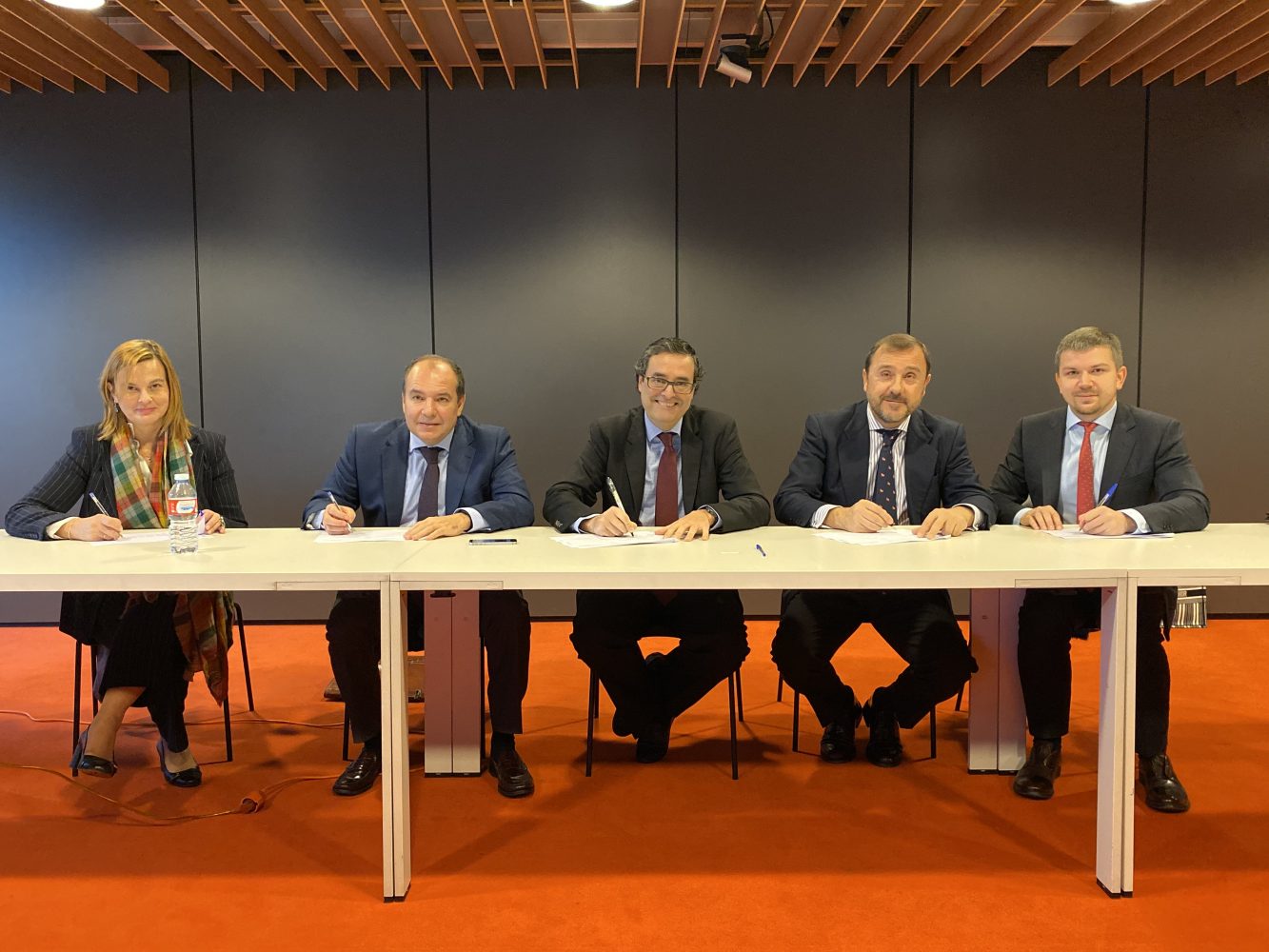
TVEL Joins Spanish Trio
back to contentsRosatom’s TVEL Fuel Company signed a memorandum of understanding on the development of cooperation with Spanish companies ENUSA, ENSA and IDOM (for details see TVEL Partners below). The first area of collaboration involves decommissioning and dismantling of nuclear and radiation facilities. The second area is radioactive waste management and related engineering and consulting services. The parties also signed a roadmap on joint projects to be agreed upon in the near future.
Market interest
According to IAEA PRIS, there were 187 shutdown reactors with the total net capacity of 83,018 MW as of 10 March 2020. Nine power units with the total capacity of 5,976 MW were shut down in 2019 alone. To compare, there were 442 operating reactors with the total capacity of 390,468 MW as of the same date. Since their service life is expiring gradually, the number of shutdown reactors will inevitably increase with years. “Around one quarter of the current nuclear capacity in advanced economies is set to be shut down by 2025 – mainly because of policies to reduce nuclear’s role. The fate of the remaining capacity depends on decisions about lifetime extensions in the coming years,” the IEA’s report entitled Nuclear Power in a Clean Energy System (May 2019) said.
TVEL sees great commercial opportunities in the growing number of shutdown nuclear power plants and other facilities. According to the company’s estimates, the market for nuclear decommissioning services will exceed EUR 100 billion by 2030.
This applies not only to power plants, but to other nuclear facilities as well. TVEL plans to take part in the decommissioning of research reactors and rehabilitation of nuclear sites, including uranium mines. The company is also interested in similar projects in other areas.
“We plan to work both independently and in partnerships with foreign companies. The form of participation can be different – a consortium, a contract, a subcontract or anything else. The specific form will depend on the market conditions, local regulations, customer needs, and so on,” the company’s press service explained.
In 2019, Rosatom made its subsidiary TVEL an industry integrator for the decommissioning of nuclear facilities (including reactors, reactor internals, and primary loop components) and management of associated nuclear waste. As an integrator of decommissioning services, TVEL sees Spain and other nuclear countries as its potential market.
Experience gained
In 2008–2015, Rosatom Group companies completed 37 projects on seven sites in Russia. All of them were launched as part of the Nuclear and Radiation Safety national program. A total of 57 facilities were decommissioned, and 13 more were prepared for decommissioning.

The projects covered by the program were diverse; each required an individual approach and unprecedented solutions. TVEL and its subsidiaries were engaged in the deactivation of highly enriched uranium processing, radiochemical, gas diffusion and fuel fabrication facilities and mothballing of radioactive waste storage sites. They also decommissioned a nuclear reactor at Chemical Metallurgical Plant in Krasnoyarsk and a uranium graphite reactor at Siberian Chemical Plant in Seversk.
At present, Rosatom is carrying out the second Nuclear and Radiation Safety national program that will last until 2030. TVEL’s competency centers, including Bochvar Russian Research Institute of Inorganic Materials, Central Design and Technology Institute, Angarsk Electrolysis Chemical Plant, and Siberian Chemical Plant, are involved.
Rosatom is already participating in international decommissioning and dismantling projects in Germany and Bulgaria. Rosatom’s subsidiary NUKEM has developed a detailed concept for the dismantling of a steam dryer and water separator at the Mühleberg Nuclear Power Plant, a concept study for the treatment of radioactive materials generated during the decommissioning projects for EnBW Kernkraft GmbH, and a design for the dismantling of equipment in the controlled areas of Kozloduy NPP Units 1–4.
In 2019, a consortium of NUKEM Technologies and German Uniper Anlagenservice won a contract for the dismantling of four reactor vessels at the Swedish nuclear power plants Oskarshamns and Barsebäck. Another international consortium involving NUKEM is engaged in the decommissioning of Biblis and Philippsburg Nuclear Power Plants in Germany and construction of a spent fuel storage facility at the Kozloduy NPP.
TVEL partners
ENUSA is a Spanish state-owned company specializing in the development and fabrication of nuclear fuel and providing engineering services for the management of fresh and irradiated nuclear fuel.
ENSA is a Spanish state-owned company manufacturing machinery and equipment for nuclear power plants and providing nuclear fuel management, maintenance, deactivation and decommissioning services. ENSA also develops and manufactures flasks and racks for the transportation and storage of nuclear fuel.
IDOM is an international company headquartered in Spain and providing engineering and consulting services in such areas as industrial design, nuclear synthesis, fissile materials and nuclear fuel cycle.
“TVEL Fuel Company and its subsidiaries have gained extensive experience in the delivery of such high-tech complex projects. As an industry integrator of these competencies, TVEL can act as a one-stop-shop contractor. Alliances with international vendors will supplement our competencies and make us more efficient in the overseas markets,” TVEL Director for Global Development Dmitry Bazhenov said.
Photo:
Representatives of TVEL, ENUSA, ENSA and IDOM signing the Memorandum




